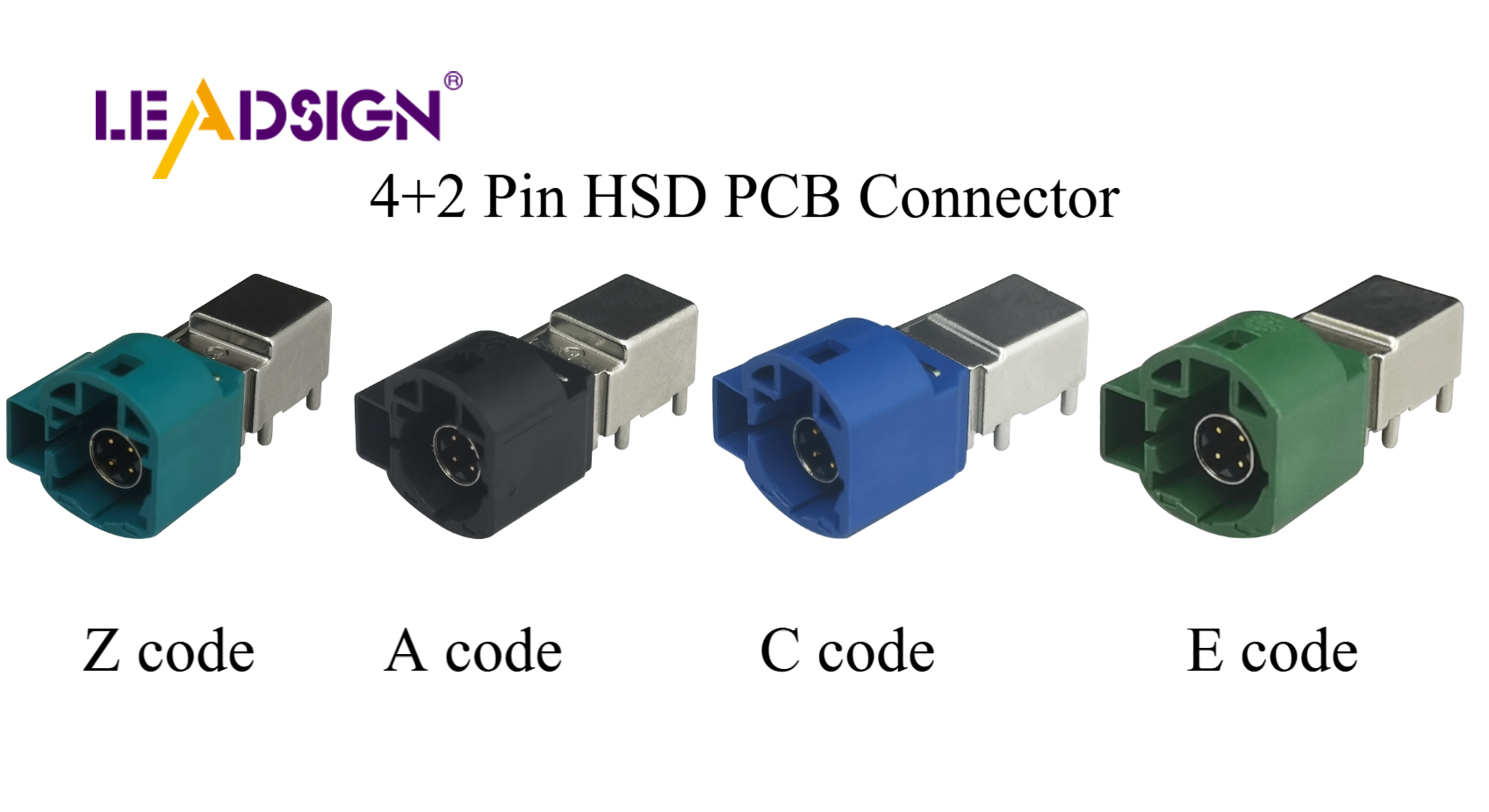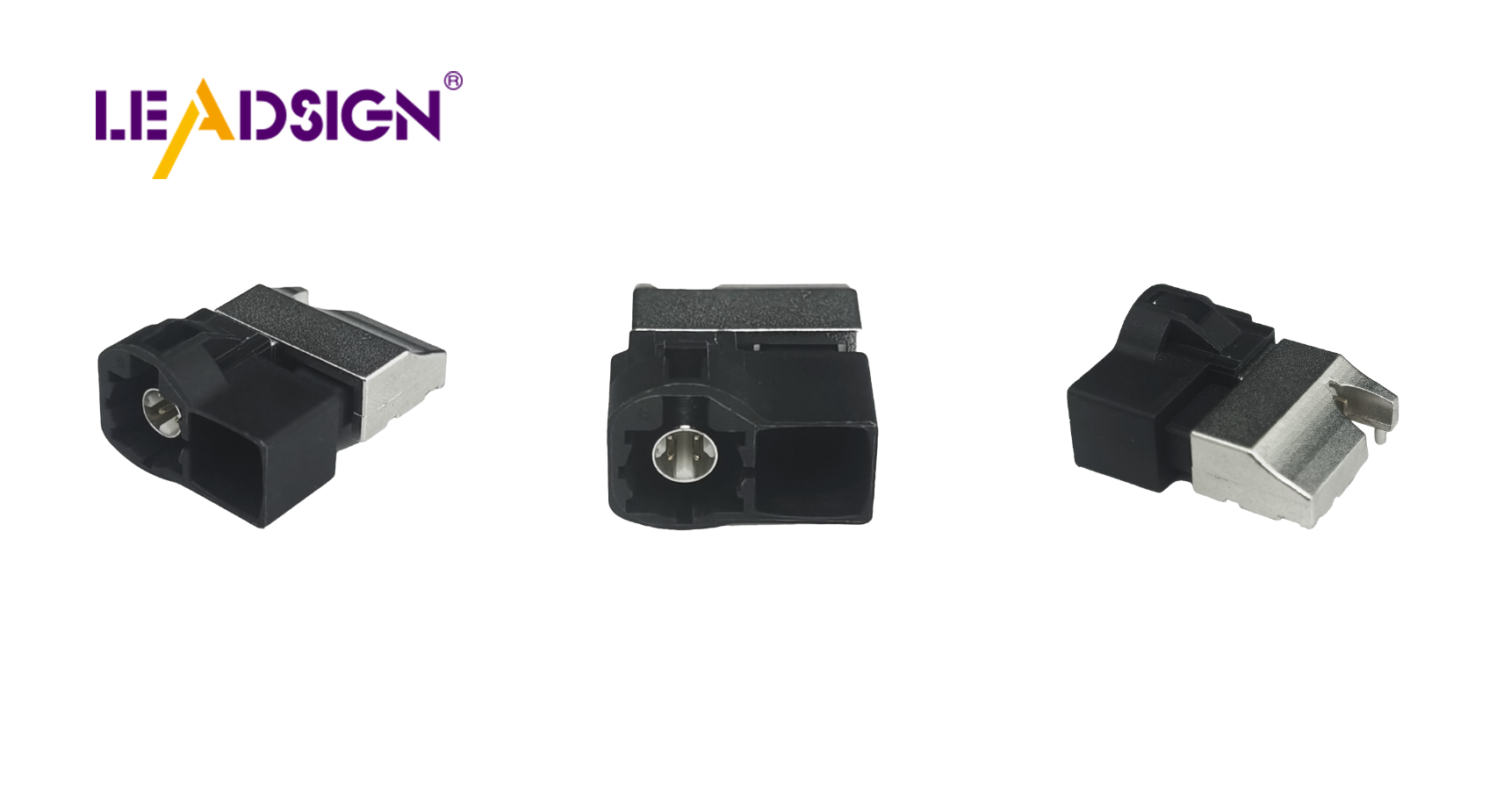Custom Car Wiring Harness and HSD Connectors for Modern Automotive Electronics

Today’s cars use high-speed data (HSD) connectors and cables. These help send data quickly between electronic parts. They allow smooth communication for entertainment and safety systems. Custom car wiring harnesses improve car performance by fitting parts perfectly. They power important systems and lower the chance of problems. Both work together to support advanced car tech like ADAS.
Key Takeaways
HSD connectors help car systems share data quickly and reliably. This improves safety and entertainment features in vehicles.
Custom car wiring harnesses make cars work better. They fit perfectly, prevent problems, and save space.
Using HSD connectors with custom harnesses improves data sharing. It also makes connections last longer and cars more dependable.
Understanding High-Speed Data Connectors
High-speed data connectors are very important in today’s cars. They help different car systems talk to each other quickly. Let’s look at their main features, standards, and designs.
Key Properties of HSD Connectors
HSD connectors are made for tough car needs. They have special features that make them great for fast data transfer:
Signal Integrity: They keep signals clear, avoiding data loss or errors.
Durability: Strong materials help them last in rough conditions.
Mechanical Reliability: Locks keep connections tight and secure.
These features are useful for systems like ADAS and car entertainment. HSD connectors can send data at speeds up to 10Gbps, perfect for high-tech uses.
Standards and Protocols Supported by HSD Connectors
HSD connectors follow many rules to work with different systems. Here’s a table of some common ones:
Protocol/Standard | What It Does |
|---|---|
USB | Moves data between devices |
LVDS | Sends video signals |
Ethernet | Connects networks |
Firewire | Transfers data quickly |
AUTOSAR | Helps car systems work together |
CAN | Lets car parts share information |
These rules make sure HSD connectors work well in cars.
Design Features for Reliability and Performance
HSD connectors are built to work well in hard conditions. Important design features include:
Impedance Control: Stops signal problems for smooth data transfer.
Crosstalk Reduction: Reduces signal mixing for clearer data.
Shielding: Blocks outside signal interference.
Durability: Resists rust and damage over time.
Temperature Resistance: Works in hot or cold weather.
Vibration and Shock Resistance: Stays connected even when the car moves.
These features make HSD connectors dependable for car systems. Whether using hsd cables or digital ones, these designs ensure they work their best.
Custom Car Wiring Harnesses in Automotive Electronics

What Are Custom Car Wiring Harnesses?
Custom car wiring harnesses are very important for today’s cars. They link electronic parts, helping them share power and information. These harnesses have wires, connectors, and terminals spread across the car. They help run safety features like locks and sensors. Each harness is made to fit a car’s specific needs. This ensures it works well and stays safe from damage.
Main parts of these harnesses include:
Wires for carrying electricity
Connectors and end pieces
Covers for protection
Shields to block interference
These parts work together to keep connections strong and prevent harm.
Benefits of Customization for Modern Vehicles
Custom wiring harnesses bring many benefits to modern cars. Special designs make cars work better and more reliably. They also lower the chances of problems. Using space wisely avoids mess and saves room. Better safety features, like stronger covers, meet strict safety rules. Custom harnesses also cut repair costs by lasting longer.
Benefit | Description |
|---|---|
Better Vehicle Performance | Custom harnesses improve how cars work and reduce issues. |
Smarter Space Use | Designs save space and avoid messy wiring. |
Improved Safety | Stronger covers and designs meet high safety standards. |
Lower Repair Costs | Reliable harnesses mean fewer repairs and less expense. |
Compatibility with High-Speed Data Connectors
Custom wiring harnesses need to work with fast connectors like HSD. This depends on several things. Electrical factors, like how much power they can handle, are key. They must also resist heat, shaking, and moisture to last long. The size and fit must be right for easy setup. For fast data, shielding and signal quality are important. Following industry rules ensures safety and good performance.
Important points for compatibility include:
Power limits and insulation strength.
Resistance to heat, shaking, and water.
Strong locks and durable materials.
Shielding and wire size for fast data.
Meeting safety and quality standards.
By checking these points, custom harnesses can work well with fast connectors like HSD cables.
Integration of HSD Connectors with Wiring Harnesses
Keeping Signals Clear and Systems Compatible
When using high-speed connectors with wiring harnesses, clear signals are key. Clear signals mean data moves smoothly without errors or stops. HSD connectors use special covers to block outside signal interference. These covers stop other signals from messing up the data flow. They also control signal strength to avoid losing data during transfer.
Making sure connectors and harnesses work together needs careful planning. The materials and design must handle fast data speeds. Connectors need to fit tightly to avoid coming loose. By focusing on these details, car systems can work reliably.
Why Pairing HSD Connectors with Custom Harnesses Helps
Using HSD connectors with custom harnesses has many benefits. First, it makes data move faster and with fewer problems. Second, custom harnesses fit perfectly, saving space in the car. This pairing also lasts longer because both parts handle tough conditions well. Together, they make car systems work better for a long time.
Problems and Fixes in Combining Them
Joining HSD connectors with harnesses can be tricky. One problem is outside signals messing up data. To fix this, strong covers can block interference. Another issue is making sure the connector and harness match. Careful design and following rules solve this. Lastly, keeping signals clear at high speeds can be hard. Using good materials and smart designs helps fix this.
By solving these problems, you can build strong connections for modern car tech.
Uses of High-Speed Data (HSD) Connectors and Cables
Advanced Driver Assistance Systems (ADAS)
ADAS needs fast data to work well. High-speed connectors help sensors, cameras, and controls talk quickly. This makes features like lane warnings and crash alerts work on time. They handle big data with little delay, which is key for safety. For example, cruise control and lane assist need quick and steady data. By linking ADAS with car displays, these connectors save space and reduce clutter. They also improve radar, lidar, and cameras, making driving safer and easier.
In-Vehicle Infotainment (IVI) Systems
Modern car entertainment systems need smooth connections. High-speed connectors send data up to 10Gbps, keeping systems connected. They work well in tough car conditions and stay reliable over time. These connectors allow fast data sharing between parts, ensuring no breaks in music or maps. By linking infotainment with ADAS, they create a smarter and more connected car experience.
Vehicle-to-Vehicle (V2V) and Vehicle-to-Everything (V2X) Communication
High-speed connectors are key for V2V and V2X systems. V2V lets cars share speed and brake info, while V2X adds road signals. These connectors help cars form networks for quick and steady data sharing. They provide the speed and low delay needed for real-time updates. This supports ADAS and improves how cars connect with each other and their surroundings.
Other Uses in Cars and Industry
Fast data connectors are used beyond ADAS and infotainment. They are important for electric car batteries, self-driving tech, and car communication. In factories, they help machines and sensors work together. Their flexibility makes them useful for many car and industrial tasks.
Future Trends in High-Speed Data Connectors and Automotive Electronics
Improvements in HSD Standards and Smaller Designs
High-speed data connectors will get smaller and better soon. New technology focuses on making connectors tiny for tight spaces in cars. Small designs fit well in smart dashboards and entertainment systems. They still send data quickly without losing quality. Engineers are adding more features to these smaller connectors. This helps meet the need for high performance in small areas. These changes also affect gadgets, RF devices, and data centers. By 2025, AI and cloud tech will push for even smaller, smarter connectors.
Growing Need for Faster Data Transfer
Cars now need faster data transfer than ever before. New tech in cars and communication systems is driving this need. Electric and hybrid cars also need strong connectors for their systems. People want features like ADAS and entertainment, which need fast connectors. Self-driving cars depend on these connectors for quick sensor communication. Electric cars also need them for battery and engine systems. Connected cars, using 5G and IoT, need connectors to handle big data flows.
New Tech and Market Growth
New technologies are changing high-speed data connectors. Self-driving cars need them for ADAS and car-to-car communication. Electric cars need them for battery systems. 5G-powered car connections need connectors for huge data amounts. These trends create new chances for high-speed cable solutions. As cars get smarter, they will rely more on these connectors for smooth performance.
High-speed data (HSD) connectors and cables are important in today’s cars. They help systems like ADAS and entertainment share data quickly and reliably. Custom wiring harnesses work like veins, carrying power and data smoothly. Picking the right parts makes them strong and work well in tough conditions. New ideas, like 5G and IoT, are changing how cars connect. These changes make cars safer and more advanced for users.
FAQ
Why are HSD connectors important for today’s cars?
HSD connectors help send data quickly and reliably. They support smart systems like ADAS, entertainment, and V2X, making cars safer and smarter.
How do custom wiring harnesses help cars work better?
Custom harnesses match your car’s design exactly. They keep wires neat, improve safety, and make power and data connections strong.
Can HSD connectors work in tough conditions?
Yes! HSD connectors can handle heat, shaking, and water. Their strong build keeps them working well in hard car environments.
💡 Tip: Pick good-quality connectors and harnesses for better performance and durability.
See Also
Understanding HSD Connectors Essential For Automotive Applications
Exploring HSD Connectors Advantages For Today's Vehicles
Why HSD Connectors Matter In Automotive Engineering
Key Benefits of HSD Connectors For Automotive Systems
HSD Connectors: Enhancing Automotive Infotainment System Performance

